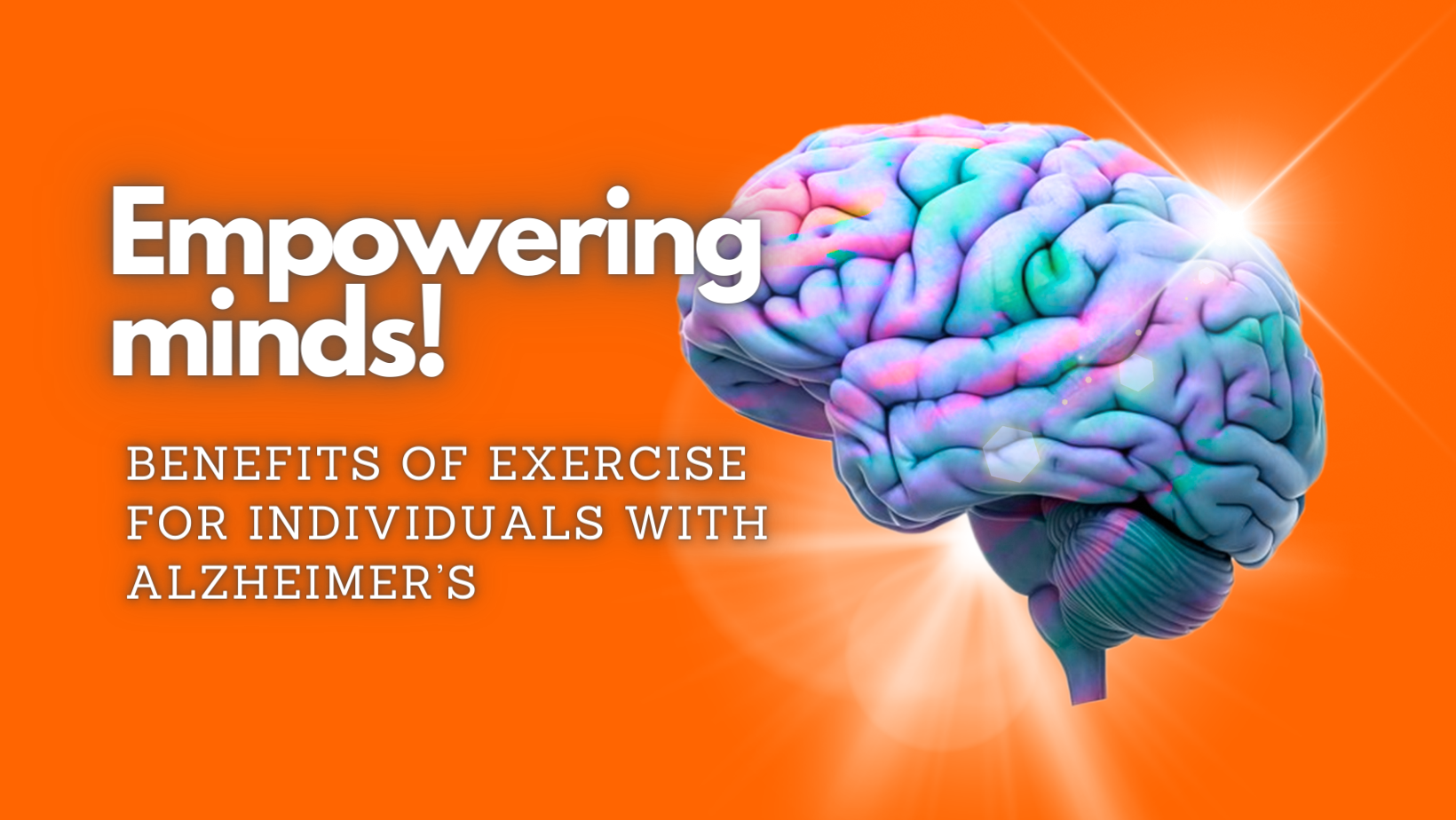
Empowering Minds:
The Incredible Benefits of Exercise for Individuals with Alzheimer’s
Alzheimer’s disease is a complex neurodegenerative condition that affects millions of people worldwide. While it primarily impairs memory and cognitive functions, studies have shown that incorporating regular exercise into the routine of individuals with Alzheimer’s carries remarkable benefits. In this article, we explore the incredible advantages of exercise in managing symptoms, improving overall well-being, and empowering minds for those facing Alzheimer’s.
Cognitive Function and Memory Enhancement:
Engaging in physical activity stimulates brain function and improves cognitive skills. Exercise increases blood flow to the brain, promoting oxygen and nutrient delivery critical for optimal brain health. Regular exercise has been shown to enhance memory, attention, and problem-solving abilities in individuals with Alzheimer’s, contributing to an improved quality of life.
Mood Elevation and Emotional Well-being:
Exercise not only positively impacts physical health but also has a powerful effect on emotional well-being. Individuals with Alzheimer’s often experience high levels of stress, anxiety, and depression. Regular exercise releases endorphins, also known as “feel-good” hormones, which elevate mood, reduce anxiety, and promote a sense of well-being. These benefits can alleviate symptoms of depression and improve overall emotional balance.
Maintaining Physical Function and Independence:
Physical decline is common in individuals with Alzheimer’s, leading to decreased mobility and functional independence. Regular exercise helps manage these challenges by improving strength, flexibility, balance, and coordination. By incorporating exercises that target these areas, individuals can maintain their physical function, reducing the risk of falls and promoting independence for as long as possible.
Improved Sleep Quality:
Sleep disturbances are common in individuals with Alzheimer’s, contributing to increased confusion and cognitive decline. Engaging in regular exercise has been shown to improve sleep patterns, promoting deeper and more restful sleep. Better sleep quality may lead to enhanced cognitive function, improved mood, and overall better functioning during waking hours.
Social Engagement and Connection:
Exercising in group settings or participating in social activities that involve physical movement can provide individuals with Alzheimer’s a sense of belonging and connection. This social engagement helps reduce feelings of isolation and can improve overall well-being. Additionally, group exercises offer opportunities for interaction, fostering friendships and support networks invaluable in navigating the challenges of the disease.
Delaying Disease Progression:
While exercise cannot cure Alzheimer’s, research suggests that physical activity may help slow down the progression of the disease. Regular exercise strengthens neural connections, increases the production of neuroprotective substances, and reduces inflammation in the brain. These mechanisms may contribute to preserving brain function and potentially slowing the progression of Alzheimer’s.
In the battle against Alzheimer’s, incorporating regular exercise can be a transformative strategy in managing symptoms, improving cognitive function, enhancing emotional well-being, and maintaining physical independence. Exercise is more than just a physical activity; it offers a holistic approach to empower the minds of individuals with Alzheimer’s. By embracing the benefits of exercise and creating supportive environments, we can champion their well-being and enhance their quality of life on this challenging journey.
